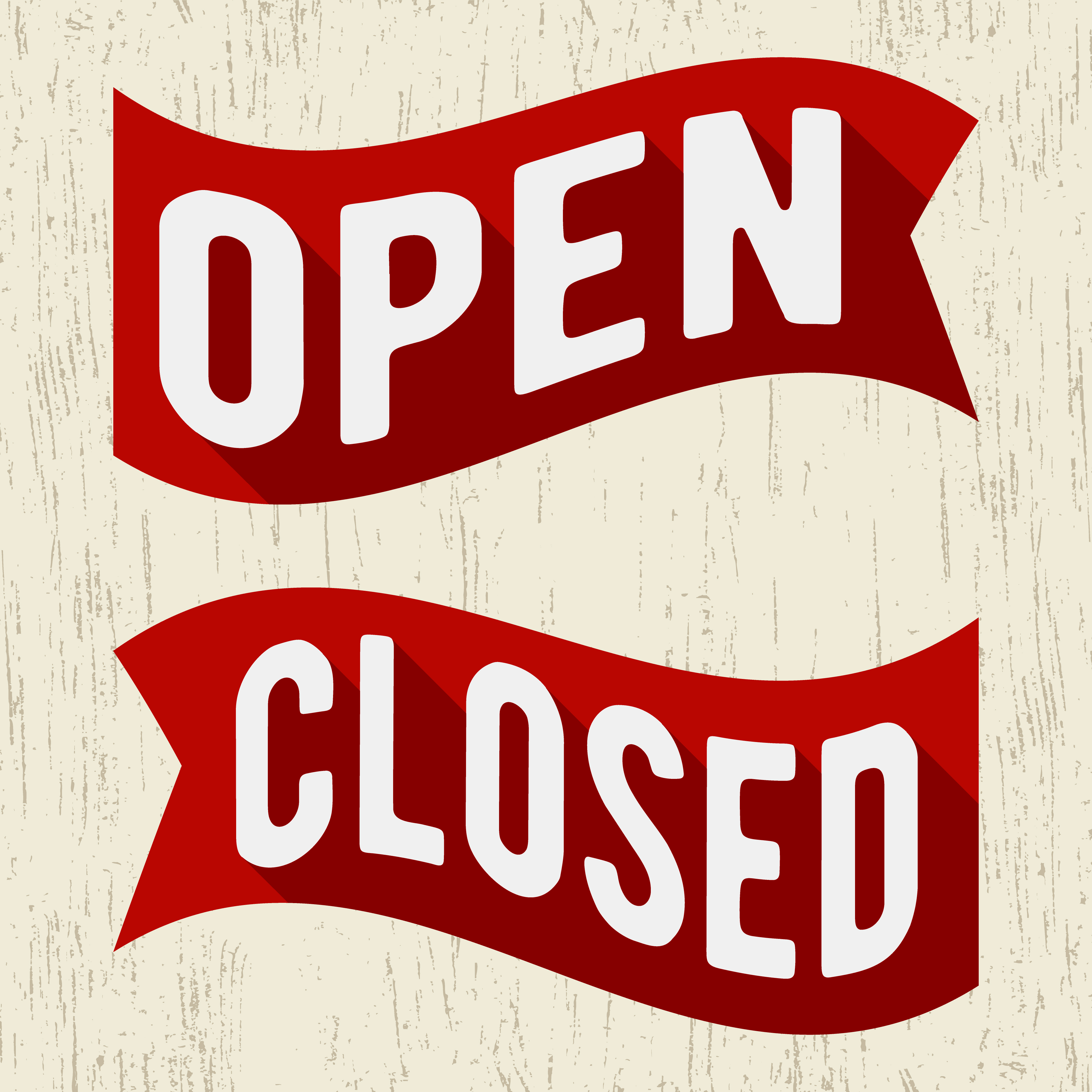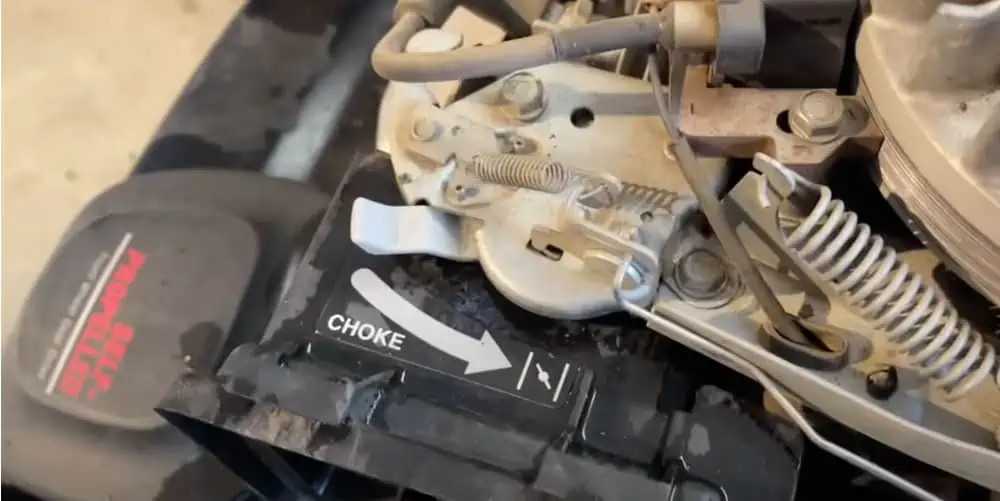Choke Open Or Closed Symbol: A Comprehensive Guide To Understanding Its Meaning And Applications
Understanding the choke open or closed symbol is essential for anyone working in industries that involve machinery, electronics, or engineering. Whether you're a professional technician, hobbyist, or student, this symbol plays a crucial role in determining the operational status of various systems. This article will explore everything you need to know about choke open or closed symbols, including their meanings, applications, and importance in modern technology.
The choke open or closed symbol is widely used in industrial and automotive settings. It serves as a visual indicator of the position of a choke valve, which controls airflow in engines. Proper understanding of this symbol ensures optimal performance and efficiency of machinery, preventing costly repairs or malfunctions.
In this article, we will delve into the technical aspects of choke open or closed symbols, their significance in different industries, and how they contribute to safer operations. By the end of this guide, you will have a comprehensive understanding of how to interpret and apply these symbols effectively.
Read also:Faye Resnick Husband Unveiling The Life And Relationships Of A Controversial Figure
Table of Contents
- What is Choke Open or Closed Symbol?
- Importance of Choke Symbols in Machinery
- Common Variations of Choke Symbols
- Choke Symbols in the Automotive Industry
- Choke Symbols in Electronics
- Choke Symbols in Engineering
- Choke Symbols and Safety Protocols
- Industry Standards for Choke Symbols
- How to Interpret Choke Symbols Correctly
- The Future of Choke Symbols in Modern Technology
What is Choke Open or Closed Symbol?
The choke open or closed symbol represents the status of a choke valve in machinery or engines. A choke valve controls the flow of air into an engine's carburetor, which is critical for proper engine performance. When the choke is open, it allows more air to flow into the engine, while a closed choke restricts airflow.
This symbol is typically represented by an icon or graphic that indicates whether the choke is open or closed. In most cases, an open choke is depicted with an arrow pointing upward, while a closed choke is shown with a horizontal line or a closed circle. Understanding these symbols is crucial for technicians and operators who work with engines and machinery.
Importance of Choke Symbols in Machinery
Efficient Engine Performance
Choke symbols play a vital role in ensuring efficient engine performance. By clearly indicating the position of the choke valve, operators can adjust the airflow as needed to optimize engine operation. This is particularly important during cold starts, where a closed choke helps the engine warm up faster.
Preventing Damage
Incorrect choke settings can lead to engine damage, reduced performance, and increased fuel consumption. Choke symbols provide a visual cue to prevent mistakes that could result in costly repairs or downtime. Properly interpreting these symbols ensures that machinery operates safely and efficiently.
Common Variations of Choke Symbols
While the basic concept of choke open or closed symbols remains consistent, there are several variations used across different industries:
- Arrow Up: Represents an open choke, allowing maximum airflow.
- Horizontal Line: Indicates a closed choke, restricting airflow.
- Closed Circle: Another variation of a closed choke symbol, often used in automotive settings.
- Diagonal Lines: Sometimes used to indicate a partially open choke.
These variations help operators quickly identify the status of the choke valve, even in complex systems.
Read also:Unveiling The Truth Andrew Burkle Cause Of Death
Choke Symbols in the Automotive Industry
Role in Engine Management
In the automotive industry, choke symbols are integral to engine management systems. They help drivers and mechanics understand the status of the choke valve, which is crucial for engine performance, especially during cold starts. Modern vehicles may use digital displays to indicate choke status, but the fundamental symbols remain the same.
Diagnostic Tools
Choke symbols are also used in diagnostic tools to identify issues with the choke valve. By interpreting these symbols correctly, technicians can pinpoint problems and perform necessary repairs, ensuring optimal vehicle performance.
Choke Symbols in Electronics
In electronics, choke symbols are used to indicate the status of inductors or coils that control electrical current flow. These symbols are particularly important in circuits that require precise control of current, such as power supplies and filters. Understanding choke symbols in electronics helps engineers design more efficient and reliable systems.
Choke Symbols in Engineering
Design and Maintenance
Engineers rely on choke symbols to design and maintain complex systems. These symbols provide a clear visual representation of choke valve positions, aiding in the development of safer and more efficient machinery. Proper interpretation of choke symbols ensures that systems operate within specified parameters, reducing the risk of failure.
Industry Applications
Choke symbols are widely used in various engineering fields, including mechanical, electrical, and chemical engineering. Their versatility makes them an essential tool for professionals working in these industries.
Choke Symbols and Safety Protocols
Safety is a top priority in industries that use machinery with choke valves. Choke symbols play a crucial role in ensuring that operators follow safety protocols by clearly indicating the status of choke valves. This reduces the risk of accidents and ensures compliance with industry standards.
In addition to visual symbols, many organizations implement training programs to educate employees on the proper use and interpretation of choke symbols. This proactive approach helps prevent accidents and promotes a safer work environment.
Industry Standards for Choke Symbols
Industry standards for choke symbols are established by organizations such as the International Organization for Standardization (ISO) and the American National Standards Institute (ANSI). These standards ensure consistency in the design and use of choke symbols across different industries.
By adhering to these standards, manufacturers and operators can ensure that choke symbols are easily recognizable and understood by all stakeholders. This promotes safer and more efficient operations across the board.
How to Interpret Choke Symbols Correctly
Interpreting choke symbols correctly requires a basic understanding of their meanings and applications. Here are some tips to help you interpret these symbols effectively:
- Identify the symbol's orientation (upward arrow for open, horizontal line for closed).
- Consider the context in which the symbol is used (automotive, electronics, or engineering).
- Refer to manufacturer guidelines or industry standards for clarification.
By following these guidelines, you can ensure that you interpret choke symbols correctly and make informed decisions about machinery operation.
The Future of Choke Symbols in Modern Technology
As technology continues to evolve, the role of choke symbols in modern systems is likely to expand. Advances in automation and artificial intelligence may lead to the development of more sophisticated choke symbols that provide real-time feedback on system status.
Additionally, the increasing use of digital displays and augmented reality may enhance the way choke symbols are presented and interpreted. These advancements will further improve the efficiency and safety of machinery operations, benefiting industries worldwide.
Conclusion
In conclusion, understanding choke open or closed symbols is essential for anyone working in industries that involve machinery, electronics, or engineering. These symbols play a crucial role in ensuring efficient operation, preventing damage, and promoting safety. By following industry standards and interpreting these symbols correctly, professionals can optimize system performance and reduce the risk of accidents.
We invite you to share your thoughts and experiences with choke symbols in the comments section below. Additionally, feel free to explore other articles on our website for more insights into various technical topics. Together, let's continue to advance our knowledge and skills in modern technology!
References:
- ISO (International Organization for Standardization): https://www.iso.org
- ANSI (American National Standards Institute): https://www.ansi.org
- SAE International: https://www.sae.org


